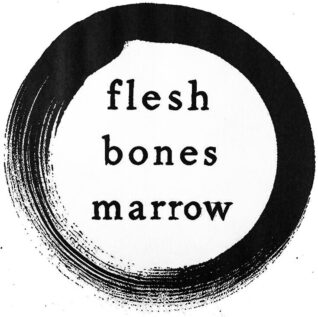Setting the Scene: The Stories We Tell Ourselves
Lori Gottlieb, in her reflections on personal narratives, highlights a profound truth: “The way we narrate our lives shapes what they become.” For example, consider someone who frames a career setback as a failure versus someone who sees it as an opportunity to grow. The first might feel defeated, while the second might be motivated to pursue new possibilities. This illustrates how our narratives significantly influence our outcomes. She reminds us that we are the heroes of our own stories, yet we are also unreliable narrators. The stories we tell about our lives—whether accurate, incomplete, or distorted—have immense power. They can keep us stuck or propel us forward. Editing these stories, reframing them, and embracing the responsibility of change can unlock new chapters and create a life aligned with our true potential.
Rewriting our life story, however, is no small task. It involves venturing into the unknown, taking responsibility for our role, and letting go of a version of events that no longer serves us. Freedom from these limiting narratives begins with a simple yet transformative act: writing. Journaling and memoir writing offer distinct but complementary paths for reshaping our stories and reclaiming control of our destiny.
The Power of Journal Writing
Journaling provides a daily practice of reflection, clarity, and growth. Historically, journaling has been embraced by figures such as Marcus Aurelius, whose meditations guided his philosophy, or Anne Frank, whose diary offered profound insights during extraordinary circumstances. Across cultures, journaling has served as a tool for self-improvement and resilience, illustrating its timeless value in personal growth. It allows us to capture the immediate texture of our thoughts and emotions, offering a mirror to examine patterns and beliefs that may otherwise go unnoticed.
Fostering Self-Awareness
When we write, we confront the stories we’ve been telling ourselves. Why did we react a certain way? What assumptions are we making about others or ourselves? Through journaling, we gain the self-awareness to question these narratives and begin the process of rewriting them.
Editing and Expanding Perspectives
Journaling isn’t just about recording events—it’s about editing our interpretations. By revisiting entries and exploring alternative viewpoints, we can challenge biases and open up new possibilities. For instance, journaling about a disagreement with someone and imagining their perspective can uncover hidden assumptions or misunderstandings. This exercise fosters empathy and helps us refine biases in our thinking.
Clarity in Chaos
Life’s uncertainties can feel overwhelming. Journaling offers a structured outlet for untangling mental knots and turning abstract worries into actionable plans. By documenting goals, values, and challenges, we create a roadmap for navigating complexity with confidence.
Building Resilience
Journaling also supports emotional resilience. Writing about setbacks or difficult emotions allows us to process and release them, transforming obstacles into opportunities for growth. Over time, our journals become a record of our progress, reinforcing our capacity to overcome challenges.
From Journaling to Memoir Writing
While journaling captures the immediate and personal, memoir writing takes these reflections and weaves them into a cohesive narrative. It’s an opportunity to look back on our lives with a broader perspective, connecting the dots and distilling the essence of our journey.
Memoir as an Extension of Journaling
Memoir writing builds on the foundation laid by journaling. Each entry, no matter how small, contributes to a mosaic of experiences that, when assembled, reveal the richness of our lives. Memoir writing takes this one step further by helping us identify overarching themes or patterns in our journey. These patterns not only provide clarity about our past but also inform how we can shape our future, creating a greater sense of meaning and coherence in our narrative.
Crafting a Legacy
A memoir serves as a testament to our choices, struggles, and triumphs. It’s a way of preserving our lives for posterity, offering wisdom and insights to others. Whether shared publicly or kept within a family, a memoir ensures that our stories live on as a source of connection and inspiration.
An Act of Empowerment
By writing a memoir, we assert control over our narrative. Ordinary life, no matter how unremarkable it may seem on the surface, possesses great significance and can reveal universal truths. By paying close attention to our experiences and reflections, we take the fragmented pieces of our lives and transform them into a coherent, purposeful story. This act of creation is not just reflective but empowering, allowing us to shape our identity and influence the course of our destiny.
Take the First Step
The journey begins with a single question: “What do I want my story to be?” To make this actionable, start by setting aside a few minutes each day to reflect on this question. Consider prompts like “What moments from today align with the story I want to tell?” or “What changes can I make to move closer to my ideal narrative?” This practice clarifies your aspirations and helps you take small, meaningful steps toward shaping your story.
Whether through journaling or memoir writing, the act of putting thoughts into words is a declaration of agency over our lives. Journaling helps us explore and edit our stories in the present, while memoir writing allows us to create a legacy for the future. Together, these practices provide a powerful framework for understanding, growth, and transformation.
Take control. Write your story. Shape your destiny.
